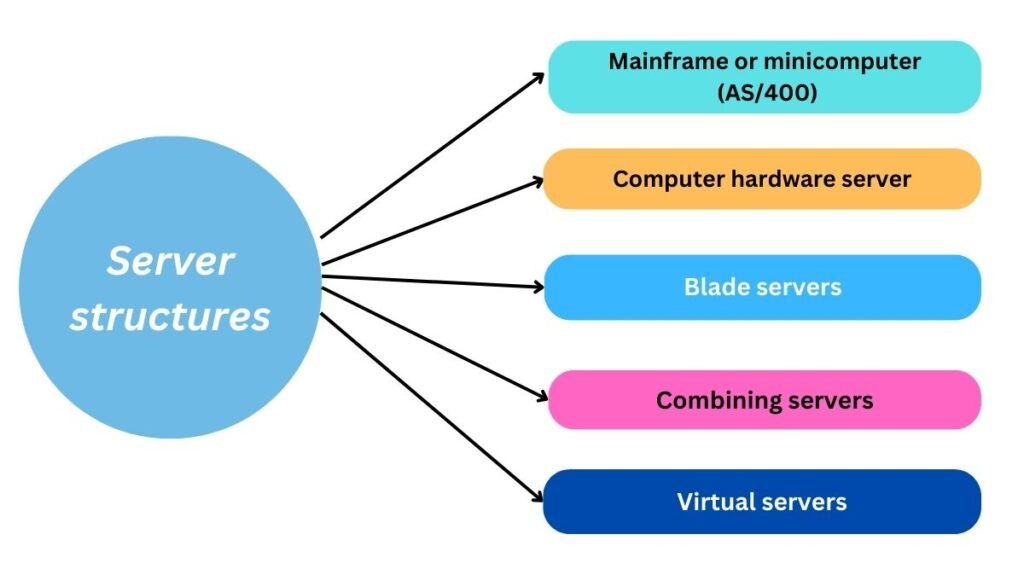Differences Between Cloud and Servers
Although physical servers and cloud servers generally serve the same purposes and share many characteristics, they also differ significantly in a number of important ways. Here are some tips to aid you in your next discussion about servers vs. clouds:

Accessibility
Cloud servers are accessible from any internet-connected device. Laptops and mobile devices can access your cloud server.
However, because servers are on-site, you must be near them to access them. In other words, servers are less accessible than the cloud.
Scalability
Scalability is another distinction between servers and the cloud. Compared to physical servers, cloud servers are typically considerably easier to scale.
Users of cloud servers have the ability to scale their resources up or down as needed. Scaling physical servers, however, is far more difficult. It is a difficult and time-consuming procedure that typically entails purchasing new hardware and setting it up to work with already-existing resources.
It’s important to keep in mind that growing physical servers can involve considerable downtime in addition to the initial expenses.
Cost Savings
Long-term cost savings are typically higher when using the cloud as your data management option. This is due to the fact that cloud servers usually function on a pay-per-use basis. You just pay for what you use as a consequence. Additionally, you save the high expenses of setting up physical servers as well as the related maintenance or operation expenditures.
Security
Security is another important consideration in the cloud vs. server debate. Cloud servers have one significant weakness even if they provide a number of strong security measures, such as firewalls, data encryption, and regular security updates. Cloud environments’ shared nature makes security breaches more likely.
When it comes to physical servers, users are directly in charge of the security protocols they put in place. To put it another way, businesses can implement their own security measures and restrict network and physical access to the server. However, these procedures usually need for specialised knowledge.
Level of Control
The degree of control that each solution offers you is yet another distinction between Cloud and Servers. Physical servers are the best when it comes to the degree of control you will have over your server’s setup and personalisation. Although cloud servers give you some flexibility in terms of personalising the cloud environment, your selections will usually be restricted.
But with physical servers, you own the entire system, so you may have as much control as you want. As a result, you have complete control over how you modify and optimise your servers.
Disadvantages
Dependence on Internet Connectivity
Although cloud servers provide incredibly convenient remote access, the system is highly dependent on the strength of the internet. Slow internet speeds or other related issues can therefore have a big effect on the user experience.
Limited Control
When it comes to cloud server setups, there isn’t much you can do on your own. Upgrades, upkeep, and security procedures are usually the responsibility of your cloud provider, which might be inconvenient.
Potential Data Security Concerns
The issue of data security is another. Even though cloud providers take many precautions to keep the environment safe, businesses that handle sensitive or highly regulated data may be concerned about the shared nature of cloud resources.
Cost Considerations
Cloud servers will typically save companies or organisations money on server-related expenses. That isn’t always the case, though, particularly for businesses that handle large data transfers. Depending on your workload pattern, you should also think about the long-term financial implications.
Cloud server examples
Amazon Web Services (AWS)
A cloud platform for networking, processing, and storage. Scalability, reliability, and global reach define AWS.
Microsoft Azure
A platform for cloud computing that provides computation, analytics, and storage services. Azure is renowned for being scalable, adaptable, and compatible with Microsoft services and products.
Google Cloud Platform (GCP)
A cloud solution that provides state-of-the-art technology and a worldwide network infrastructure. GCP is renowned for emphasising machine learning and analytics.
IBM Cloud
A cloud platform that provides industry-specific solutions, AI-powered services, and enterprise-grade infrastructure. IBM Cloud is renowned for emphasising security and compliance.
DigitalOcean
A cloud service that offers developers and companies simple, affordable solutions.
Servers powered by cloud computing platforms are called Cloud and Servers uses remote computers to store, process, and administer data and apps.
Why Cloud server
Cost effectiveness
Businesses don’t have to pay for server hardware maintenance; they simply pay for what they require.
Scalability
To accommodate fluctuating demands, users can scale up or down their computer and storage capacity.
Integration
Cloud servers are networked to guarantee quick deployment and continuous communication.
Flexibility
A flexible workforce may benefit from the ability to access the same server from many locations.
Data Storage
A global network of distant servers located in data centres is the foundation of cloud storage. This eliminates the requirement for personal storage infrastructure and enables users to access data over the Internet.
Resource reallocation
Reallocating resources and adjusting to changing workloads are made simple by virtualising servers.

